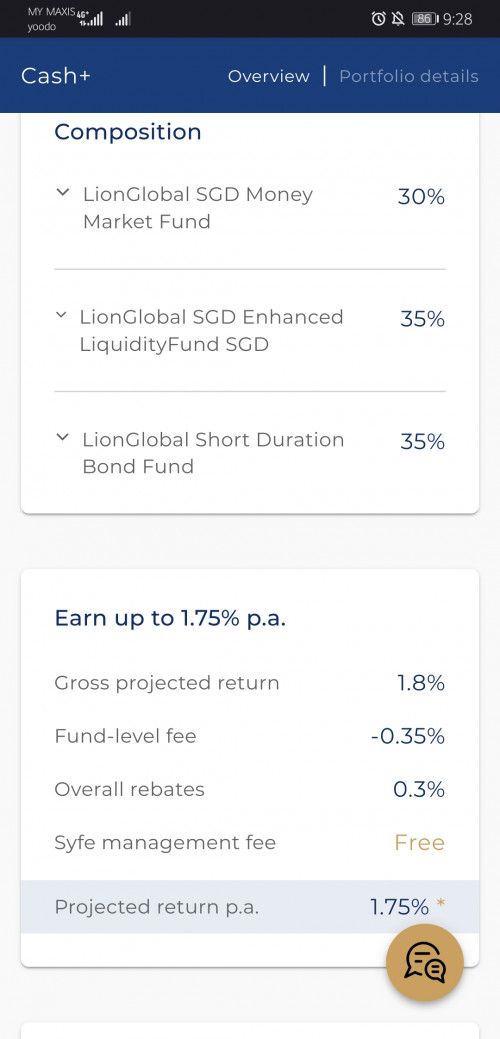QUOTE(eeesiang @ Feb 4 2021, 11:37 AM)
Thanks for the replies.
Like I mentioned, I'm very new to MMF. If you ask me, I think barely know about the implication of OPR.
Tried my best to understand the concept, but it's still very abstract to me.
I'm not a professional in finance, economy, you see. The product fact-sheet is filled with finance-jargons. That's why I am asking.
Thanks to you, I manage to know that MMF allocation consists of interest-imposed products available in bank.
Btw,
what's TIA?

My search results are not helpful at all.

And it seems that the amount of returns from those products was determined by OPR, I presume.
May I know if all the following products/instruments depending on OPR as well?
Asset allocation: Primarily in government / government-backed securities, bills of exchange, negotiable certificate of deposits, promissory notes,
call deposits and other short-term government/ bank-backed securities and money market instruments. Section Allocation as at 31st Dec 2020:
100% Cash, The Fund invest in Short-term Money Market Instruments and Placement in Short-term Deposit onlyMay I know what's the significance of different weightage of cash/bond in a MMF product?
If opr goes down, bond yield (but price goes up), fixed deposit interest, loan interest, savings account interest all drop.
Since mmf invest in FD and bonds, if interest rate drop, MMF is getting paid back lesser. Hence return in MMF also drop.
Opr is basically central bank interest rate. Dropping interest rate is thought to stimulate the economy as debt now become cheaper which means company save more by getting cheap debt. The savings use can be use to expand business.
Of course if interest rate drop, savers lose. You don't even need to know the details of it or how or why it happend. Just know that opr drop, all interest drop. Less headache.
Amount of cash is important. Cash doesn't give any interest. Hence the more cash a unit trust keep, the lesser the return as you are keeping something which does not increase overtime.
I have no background in finance or economy but this simple stuff is simple. Just keep it simple.
This post has been edited by Ramjade: Feb 4 2021, 12:14 PM 

 Jan 30 2021, 07:16 PM
Jan 30 2021, 07:16 PM

 Quote
Quote

 0.0242sec
0.0242sec
 0.51
0.51
 7 queries
7 queries
 GZIP Disabled
GZIP Disabled